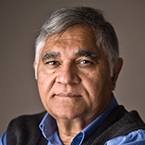
Best known for his pivotal gene therapy discoveries, Dr. Verma is a global authority on the development of viral gene therapy vectors such as those developed by he and his colleagues using a modified form of HIV. Using this vector, he successfully delivered therapeutic genes into preclinical animal models. He was among the first to demonstrate the feasibility of gene therapy using a retroviral vector and provided the foundation on which many current investigational gene therapy approaches are based.
Through his research, Dr. Verma has worked to create a superior mouse model of cancer by utilizing modified viruses to effectively deliver activated oncogenes to specific target cells within immunocompetent mice. By using this approach to promote carcinogenesis, Dr. Verma and his team have been able to uncover valuable new insights into the genetic etiologies of various cancers.
Dr. Verma’s research continues to center on understanding the molecular mechanisms of carcinogenesis and most recently has included investigations into the contributing role of inflammation during this process. In this regard, his team has been examining how suppression of inflammatory gene products may slow disease progression. Additionally, his recent investigation of the tumor suppressor BRCA1 revealed its role in maintaining heterochromatin integrity and linked BRCA1 mutations to genomic instability and increased susceptibility to developing certain cancers. His laboratory has also been active in developing and refining methods by which to generate inducible pluripotent stem cells.
Career Highlights
2010 Robert J. and Claire Pasarow Foundation Medical Research Award in Cancer Research
2009 Outstanding Achievement Award, American Society of Gene and Cell Therapy
2008 Vilcek Prize in Biomedical Sciences
2008 Lifetime Achievement Award, American Association of Indian Scientists in Cancer Research
2006 Elected Member, American Philosophical Society
2004 Elected Fellow, American Association for the Advancement of Science
2004 Elected Foreign Fellow, Indian National Science Academy
2000 President, American Society for Gene Therapy
2000 Elected Fellow, American Academy of Arts and Sciences
1999 Elected Member, Institute of Medicine
1997 Elected Member, National Academy of Sciences, Washington, D.C.
1997 Elected Fellow, American Academy of Microbiology
1987 MERIT Award, National Institutes of Health
1971 PhD, The Weizmann Institute of Science, Rehovoth, Israel